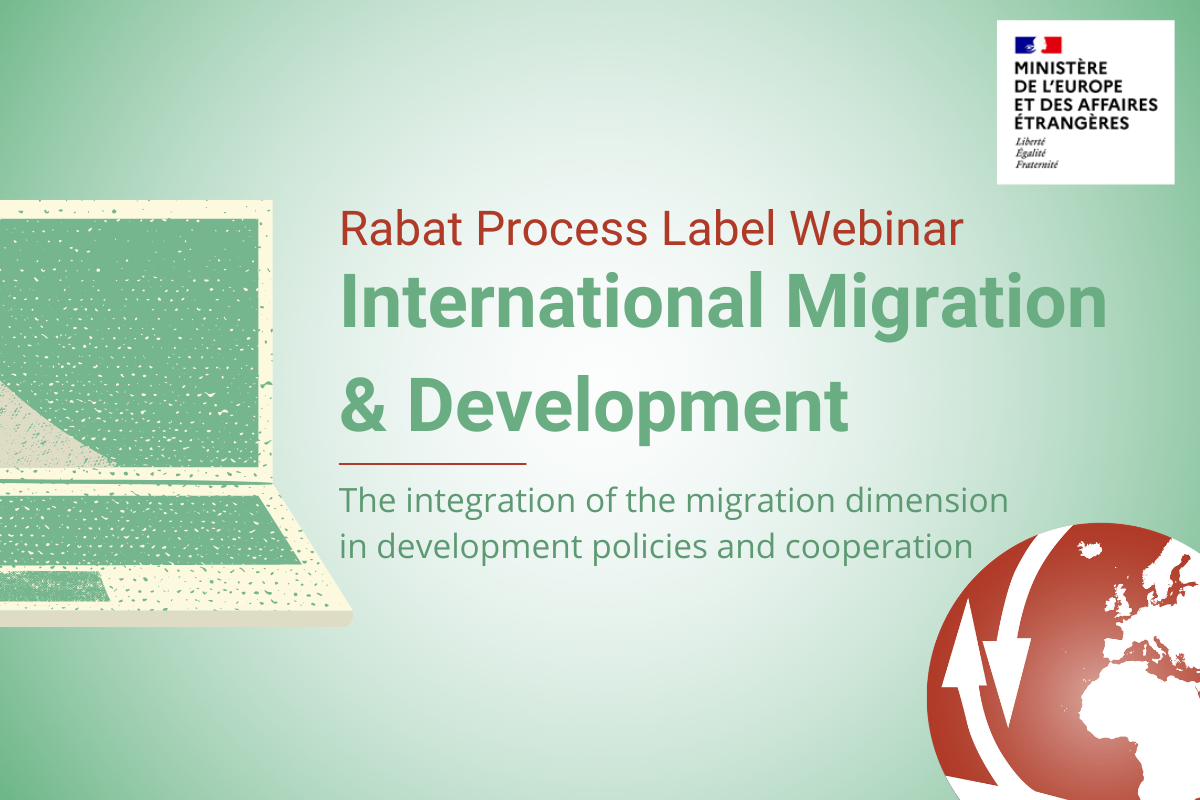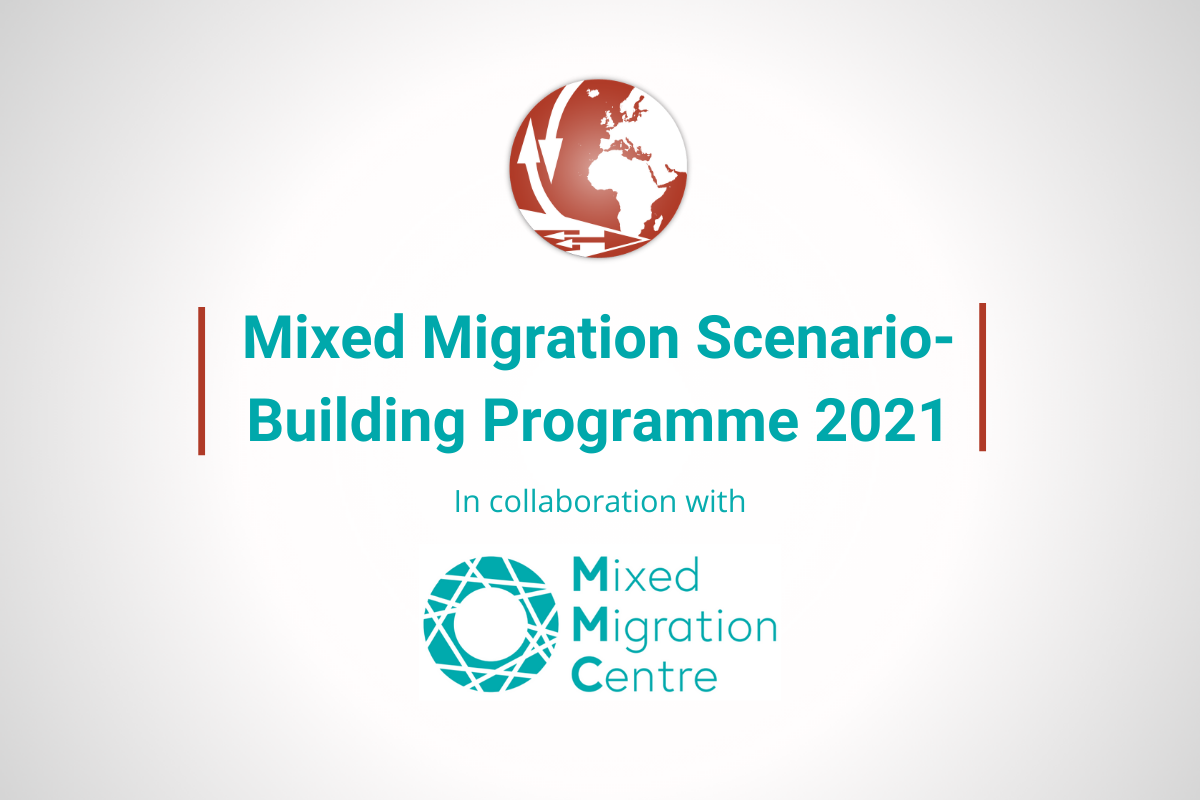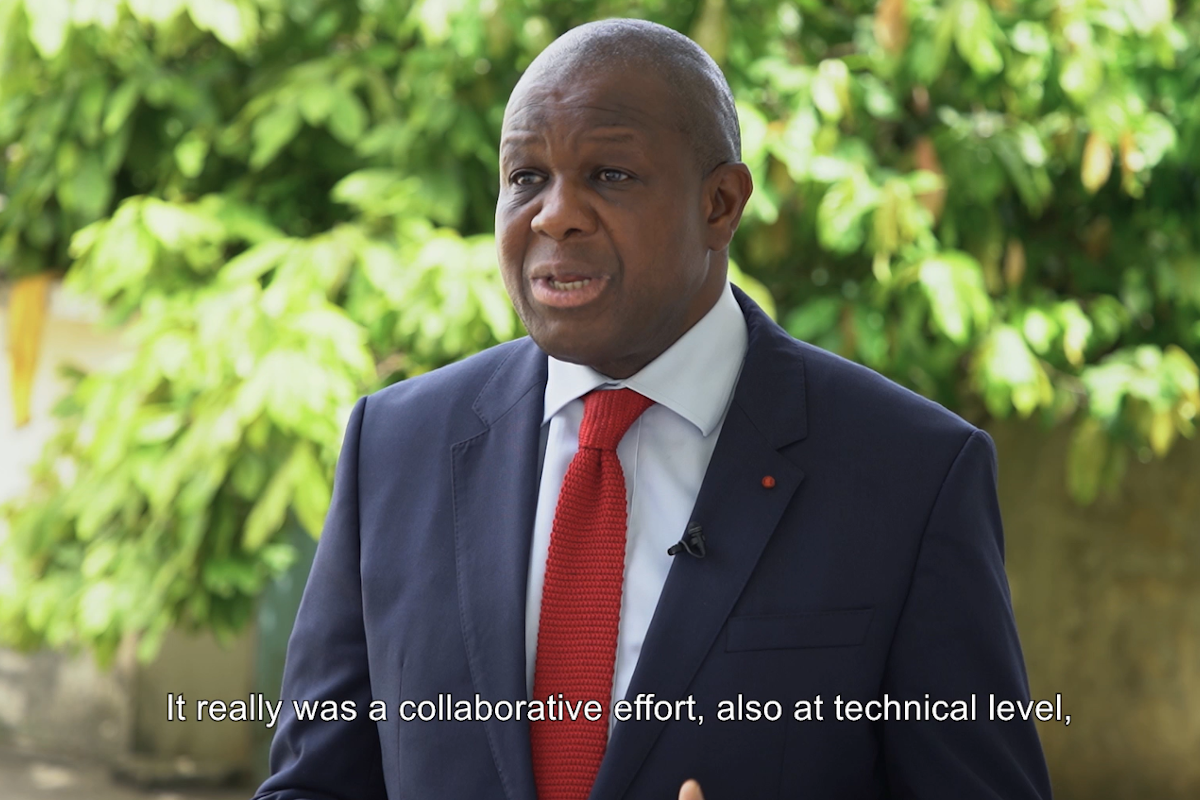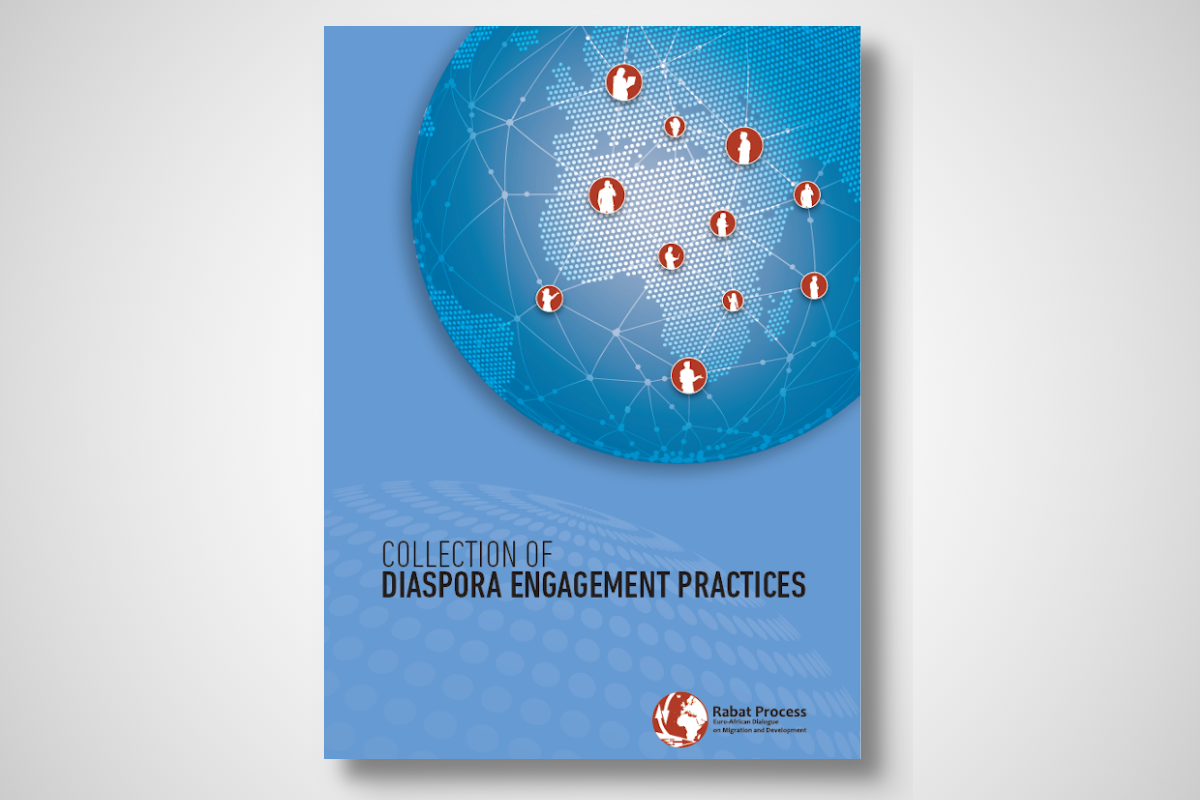On 19th April 2021, the first “Rabat Process” labelled event took place in the form of a webinar on the topic of International Migration and Development. With over 85 participants, connecting from Africa and Europe, the webinar brought together a wide range of stakeholders – albeit digitally – to share their expertise. Not only partner countries and organisations, but also researchers and representatives of international organisations and civil society contributed to the webinar.
While “Migration and Development” has been widely addressed by Rabat Process meetings in recent years, the webinar’s specific focus on mainstreaming migration into development policies and development cooperation policies had never been the subject of a dedicated meeting before. The labelled event was piloted by the French Ministry of Europe and Foreign Affairs, with the support of the Rabat Process Secretariat, implemented by ICMPD.
Identifying good practices: focused panel discussions
The objective of the meeting was to identify good practices in European and African countries regarding the elaboration of "Migration and Development" policies and strategies, their implementation and monitoring as well as the multi-level governance of these policies at local, national or regional level.
Interventions by France and the European Commission kicked off the meeting and were followed by a session on the underlying theoretical framework, with input from experts representing ICMPD and the OECD. The thematic core of the meeting consisted of two panel discussions, focusing on policies and strategies as well as South-South cooperation in the area of migration and development. The webinar also premiered a video, produced by the Rabat Process Secretariat, featuring first-hand insights into the elaboration of Migration and Development strategies in Côte d’Ivoire and Switzerland.
The newly released final document provides a concise summary of the key points that were raised during these sessions and highlights the main conclusions.
Cross-cutting points raised during the webinar:
- A comprehensive and coherent approach to migration is essential;
- It is important to include migration in different sectoral policies:
- It is necessary to have reliable and objective data to underpin Migration and Development policies.
Panel 1: Elaboration and implementation of Migration and Development policies and strategies
The first panel allowed for an exchange on the way in which policies and strategies linking migration and development are elaborated, but also to understand how they are managed, monitored and evaluated by the different actors, while paying particular attention to the governance of these policies. The panelists represented Ghana, France/AFD, and the civil society organisation “Migrations et Développement”.
Key points raised in panel 1:
- Inter-institutional coordination and an inclusive and participatory approach are key to implementing comprehensive policies/strategies;
- The key role of diasporas in shaping Migration and Development policies/strategies;
- Implementation, monitoring and evaluation of Migration and Development policies/strategies.
Panel 2: Strengthening Euro-African and South-South cooperation and partnerships
The second panel proposed to reflect on how Euro-African and South-South partnerships and cooperation in the field work. The panel focused specifically on operational modes to accompany policy implementation, such as capacity building programmes, support programmes for the elaboration of migration-development policies, and similar initiatives. The panelists represented Germany/GIZ, Morocco and IOM.
Key points raised in panel 2:
- Capacity building actions enable comprehensive and sustainable policy-making;
- Support to diasporas in the framework of Euro-African partnerships;
- Strengthening South-South cooperation offers concrete solutions to common development problems.
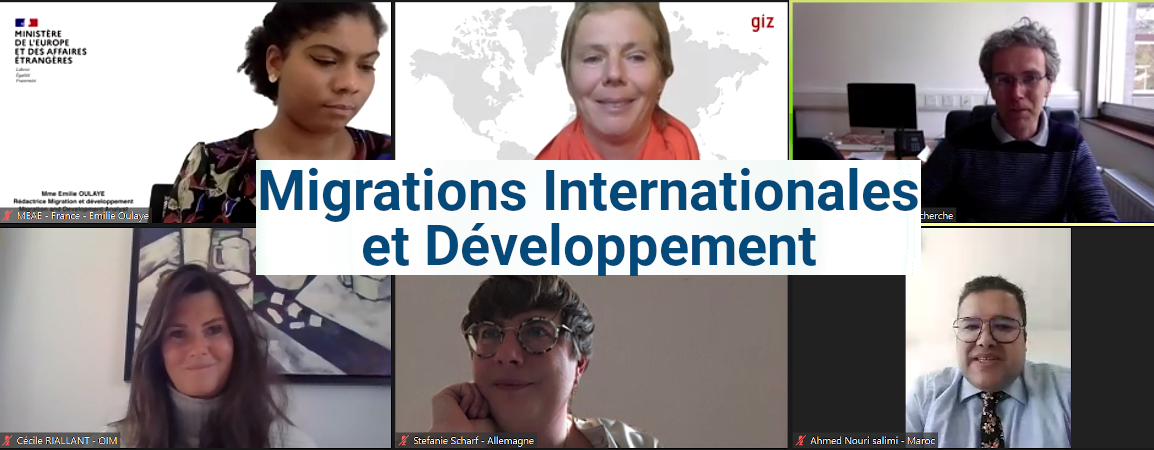
Preparatory documents for a common knowledge base
To ensure a common knowledge base, the French Ministry of Europe and Foreign Affairs and the Rabat Process Secretariat developed two working documents that were shared with participants prior to the meeting. The documents feature the different approaches of selected African and European Rabat Process partners towards Migration and Development policies and strategies.
- Working document: Migration and Development policies and strategies in Africa
- Contents: Regional analysis and country factsheets: Burkina Faso, Cabo Verde, Côte d’Ivoire, Ghana, Morocco, Togo
- Working document: Migration and Development policies and strategies in Europe
- Contents: European regional analysis (Denmark, Finland, France, Spain, Sweden, Switzerland) and country factsheets (France, Switzerland)
The first “Rabat Process” labelled event
The “Rabat Process” labelled webinar had been initially conceptualised as a face-to-face workshop, to take place during the French Chairmanship of the Dialogue. However, due to the Covid-19 pandemic, it was decided to adapt the programme and organize a virtual meeting instead.
The topic of the meeting was linked to Action 5 of the Marrakesh Action Plan which aims to “promote a more systematic inclusion of issues related to the root causes of irregular migration and forced displacement into socio-economic development strategies and programmes at national level, and into development cooperation programmes, whilst also promoting ownership of existing regional normative frameworks.”
Outcome document
Preparatory working documents
- Working document | M&D policies and strategies Africa
- Working document | M&D policies and strategies Europe
Presentations and resources
- Context session: "Mainstreaming migration into development policies and cooperation" - J. Gagnon, OECD
- Context session: "The why, how, who and what of migration and development policy frameworks" - O. Chirita, ICMPD (MiEUX)
- Panel 2 : “Plan d’action CICID “Migrations internationales et développement (2018-2022)” – M. Beaujeu, Agence francaise de développement (AFD)
- Panel 2: "Strengthening the capacities of governments, institutions and systems for good migration governance" - C. Riallant, IOM
- Info-sheet and webpage on the Mainstreaming Migration into International Cooperation and Development (MMICD) Project
- Toolkit for Integrating Migration into the COVID-19 Socio-economic Response
- Series of Sector Videos that highlight projects which integrated migration for improved sustainable development outcomes

